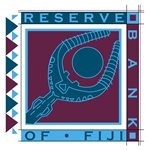By Dionisia Tabureguci
The easing of foreign exchange controls recently approved by the Reserve Bank of Fiji (RBF) has seen five new exchange controls put fully in the ambit of commercial banks and foreign exchange dealers in the country.
These are: the opening of Foreign Currency Accounts (FCA) for film production, now fully delegated to commercial banks and foreign exchange dealers; the opening of Retained Foreign Currency Accounts (RFCA) with a ceiling of F$100,000 (US$47,738) per company; Advance Import Payments made to individuals, where up to F$2,000 (US$954) per invoice will not need RBF approval; lubricant, engine oil, hydraulic oil purchase where payments of up to F$100,000 (US$47,738) per invoice may be made directly via commercial banks and foreign exchange dealers without requiring RBF approval; and local foreign currency loans of up to F$2 million (US$954,767) per company per year, which can be remitted offshore at the discretion of commercial banks and foreign exchange dealers.
An RBF statement said the changes were approved by its board in line with the positive outlook for growth and foreign reserves and should boost current investor optimism in the economy.
As at 28 June, foreign reserves stood at F$2.139 billion, enough to cover 4.9 months of retained imports of goods and non-factor services while economic growth this year is widely forecast at over 3 percent.
Further relaxation of foreign exchange controls were also approved for: payments of charges/services/fees, where the ceiling will increase to F$1m (US$477,383) per invoice (previously F$500,000 or US$238,691); reimbursement of rental bond, immigration bond, etc (amounts of up to F$10,000 (US$4,773) a month may be remitted directly via commercial banks and foreign exchange dealers instead of the F$2,000 (US$954) a month previously allowed); and the withdrawal of foreign currency for foreign vessels, which has been bumped up from F$10,000 (US$4,773) per beneficiary previously to $50,000 ($US23,869) per withdrawal.
These new changes, announced last week by the Minister for Economy Aiyaz Sayed-Khaiyum in is 2018/2019 national budget address, will all come into effect on August 1.
-ends-
